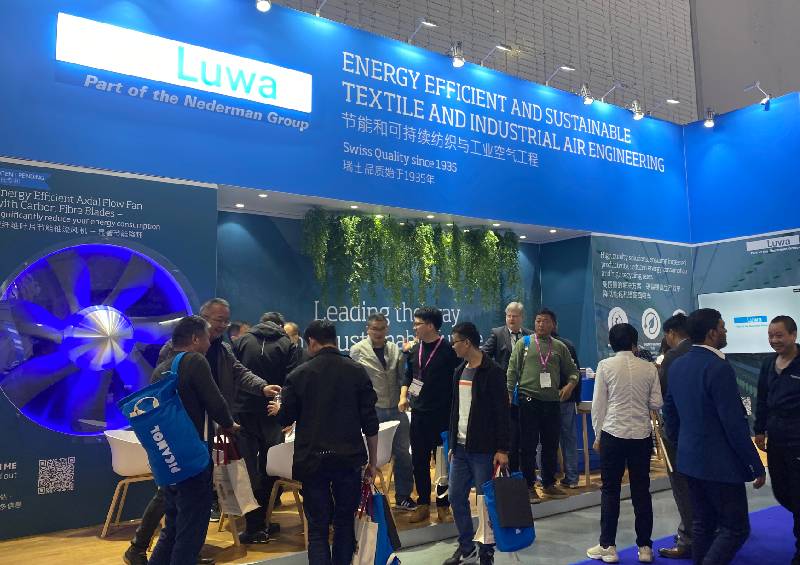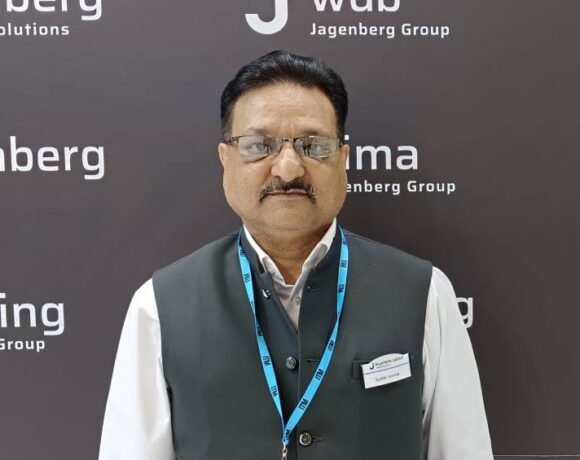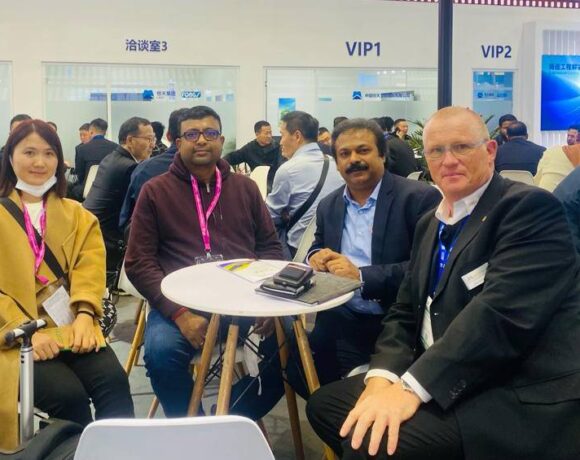Luwa’s Vision For Tomorrow: Sustainability, Efficiency and Growth in the Textile Sector

How would you describe your overall experience at ITMA Asia + CITME?
Luwa had a fantastic presence at the ITMA ASIA + CITME exhibition in Shanghai. We showcased our latest innovation, the Axial Flow Fan with carbon fibre blades B800CF, emphasizing our commitment to provide advanced energy efficient solutions to the textile industry. Axial fans are the main power consumer in an air conditioning or filtration system in a textile mill.
In a spinning mill, they account for about 55% and in a weaving mill up to 75% of the total electrical energy consumed. By developing this Axial Flow Fan with carbon fibre blades, Luwa has taken measures to reduce this electricity consumption and help the industry to bring down its production cost. The exhibition provided an excellent platform for us to engage with industry peers, customers and partners, fostering meaningful conversations about the future of textile manufacturing.
The overall experience at ITMA Asia + CITME was exceptionally positive. The diverse range of exhibitors and the comprehensive representation of the textile supply chain made the event truly insightful. Networking opportunities were abundant, allowing for meaningful interactions with customers from various Asian countries involved in textiles. The organization, quality of presentations and the overall atmosphere contributed to a highly enriching experience.
Did Luwa see any positive developments in the scenario of the Chinese textile market?
Yes, Luwa observed several positive developments in the Chinese textile market during our participation at ITMA Asia + CITME. There is a clear emphasis on innovation and sustainability within the Chinese textile industry, as evidenced by the adoption of advanced technologies showcased by exhibitors. The industry’s commitment to environmental responsibility and efficiency aligns well with Luwa’s focus on providing cutting-edge solutions. The positive reception of our new Axial Flow Fan with carbon fibre blades and the overall enthusiasm of visitors at the exhibition indicate a promising trajectory for the Chinese textile market.
From Luwa’s perspective, what are the anticipated trends and performance expectations for the textile industry in the near future?
From Luwa’s perspective, we anticipate several key trends that will shape the textile industry in the near future. Sustainability is a paramount concern, and we see a continued emphasis on eco-friendly materials and processes. The industry is embracing digitalization and smart manufacturing, and we expect these technologies to play a crucial role in enhancing operational efficiency.
Additionally, the integration of artificial intelligence and data analytics is likely to become more prevalent, enabling manufacturers to optimize production processes and make informed, data-driven decisions. Overall, the textile industry’s commitment to innovation and sustainability positions it for continued growth and resilience in the face of evolving global demands.














